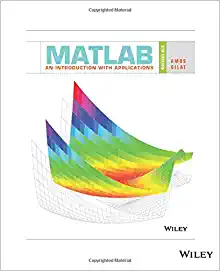Question
1.If a person focuses their budget on spending vs saving, it is more likely they will a)Oversavec)Save just the right amount b)Overspendd)All of these
1.If a person focuses their budget on "spending" vs " saving", it is more likely they will
a)Oversavec)Save just the right amount
b)Overspendd)All of these
2.Retirement planning should begin
a)When you retirec)well before you retire
b)Shortly after you retired)at any time
3.Personal finance does not include the process of planning your
a)Spendingc)Investing
b)Financingd)Spirituality
4.Which item is not one of the components of a personal financial plan ?
a)Setting aside money for season ticket for PBA games
b)Investing your money
c)Planning your retirement
d)Budgeting
5.Estate planning
a)Protects your wealth against unnecessary taxes
b)Shelters your wealth against all taxes
c)Ensures that your wealth is distributed in the manner that you determine
d)"a" and "c" are correct
6.A personal financial plan specifies financial goals and describes
a)saving, investing and asset valuation
b)spending, saving, and credit card financing
c)spending, financing and investment plans
d)saving and spending only
7.The first step in developing your financial plan is
a)Establish your financial goalsc)Buy a cool car then begin saving money
b)Pay off all your credit cardsd)Get a good job
8.All of the following are true with regard to the demand for financial advisers, except
a)many people lack an understanding of personal finance
b)many people prefer to rely on advisers rather than making their own decisions
c)many people are just not interested in making their own financial decisions
d)only financial advisers can purchase mutual funds for a person
9."Big spenders" focus their budgeting decisions on
a)Reducing expensesc)Spending most of their income
b)Increasing incomed)Saving most of the income
10."Big savers" focus their budget decisions on
a)Reducing expensesc)Spending most of their income
b)Increasing incomed)Saving as much of their income aspossible
11.Which of the following is not an asset ?
a)Your house that you rent
b)Your car that you financed
c)Your coin collection given to you by your grandfather
d)Your textbooks
12.The process of forecasting future expenses and savings is
a)Budgetingc)Predicting
b)Planningd)Fortune-telling
13.It involves having access to funds to cover any short-term cash needs
a)Investmentc)Liquidity
b)Moneyd)Risk
14.Which of the following is a credit management decision ?
a)Purchasing a used car in cash
b)Investing your savings in the stock market
c)Obtaining a student loan to attend college
d)Putting money into your retirement account
15.Your net worth will not be increased by which of the following actions ?
a)Increasing your savings from 10% to 15% of your earnings
b)Receiving a P1,000 birthday present from your grandmother
c)Buying a new home entertainment system and putting the entire amount on your credit card
d)Receiving an inheritance
16.Which of the following is an example of money management ?
a)Putting your money in a savings account at your bank
b)Shopping around for the credit card with the best interest rate
c)Deciding to delay buying a new car until you can pay cash
d)Paying off a loan early to reduce the interest charges
17.What is the core purpose of buying insurance ?
a)Protect your wealth and assets
b)Make sure you make money on any claim
c)Insurance is an expense a careful investor needs to minimize
d)Make sure you leave an estae when you are gone
18.Which of the following items is not a liability ?
a)The balance due on your credit cardc)The wages you give up to take a class
b)Your college loansd)An IOU to your roommate
19.To increase your svings,
a)Income must be increased or expenses decreased
b)Expenses must be increased
c)Income must be decreased
d)Net worth must be decreased
20.A measure of your wealth is
a)The highest level of education you've attained
b)The amount of your annual income
c)The current market value of what you own minus the value of what you owe
d)Your tax bracket
Step by Step Solution
There are 3 Steps involved in it
Step: 1

Get Instant Access to Expert-Tailored Solutions
See step-by-step solutions with expert insights and AI powered tools for academic success
Step: 2

Step: 3

Ace Your Homework with AI
Get the answers you need in no time with our AI-driven, step-by-step assistance
Get Started


